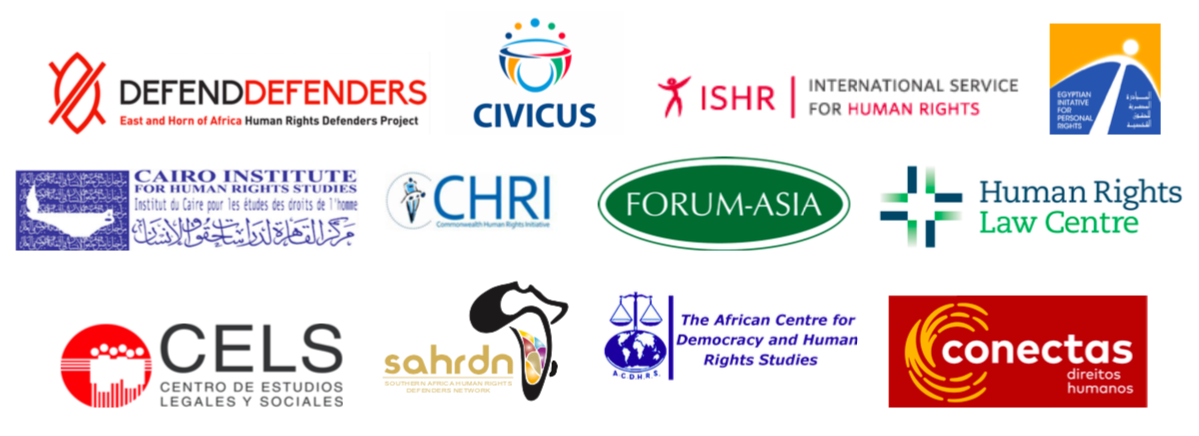In a joint paper released today, a group of 12 NGOs encourage States to more systematically use civic space indicators as objective criteria for action at the UN Human Rights Council. “Mainstreaming civic space in State interventions at the UN Human Rights Council” makes the case for greater protection of human rights defenders (HRDs) and other civil society actors through State interventions at the Council, which is the UN’s principal human rights body.
In February 2020, the UN Secretary-General launched a global “Call to Action” in which he made clear that threats against HRDs (especially women HRDs) and journalists are increasing, and that governments restricting civic space “is frequently a prelude to a more general deterioration in human rights.” This paper, which was developed by DefendDefenders in collaboration with partners (11 other members of the HRCnet network), highlights the value of the “objective criteria” approach, including at an early stage, whenever human rights concerns are mounting in a specific situation.
States should use civic space indicators to objectively assess human rights situations. Among the objective criteria they can use, civic space restrictions (such as attacks against HRDs, civil society actors and independent voices, and an overall shrinking space for civil society) are often early warning signs of human rights crises. Civic space indicators can also be used to assess progress at the national level.
As shown in a recent Council report, the Council’s “prevention mandate” remains under-utilised. By taking into account key civic space developments, States could engage in more meaningful action and, where the situation warrants it, in preventative engagement with the countries concerned.
The paper suggests areas where action is possible, using civic space indicators in a systematic manner. These areas include individual and joint State statements at the Council, thematic debates, resolutions, the Universal Periodic Review (UPR) process, and special sessions and urgent debates.
Ultimately, nothing meaningful can happen without States’ political will to address country situations more objectively and decisively. Civic space indicators need to be part and parcel of States’ assessments and interventions at the Council.
Read the full paper.
Signatories:
1. DefendDefenders
2. African Centre for Democracy and Human Rights Studies (ACDHRS)
3. Asian Forum for Human Rights and Development (FORUM-Asia)
4. Cairo Institute for Human Rights Studies (CIHRS)
5. Centro de Estudios Legales y Sociales (CELS)
6. CIVICUS
7. Commonwealth Human Rights Initiative (CHRI)
8. Conectas Direitos Humanos
9. Egyptian Initiative for Personal Rights (EIPR)
10. Human Rights Law Centre
11. International Service for Human Rights (ISHR)
12. Southern Africa Human Rights Defenders Network (SAHRDN)

